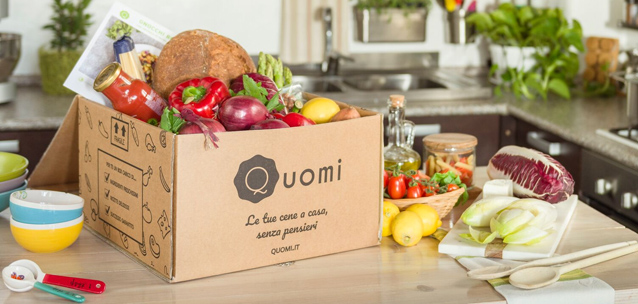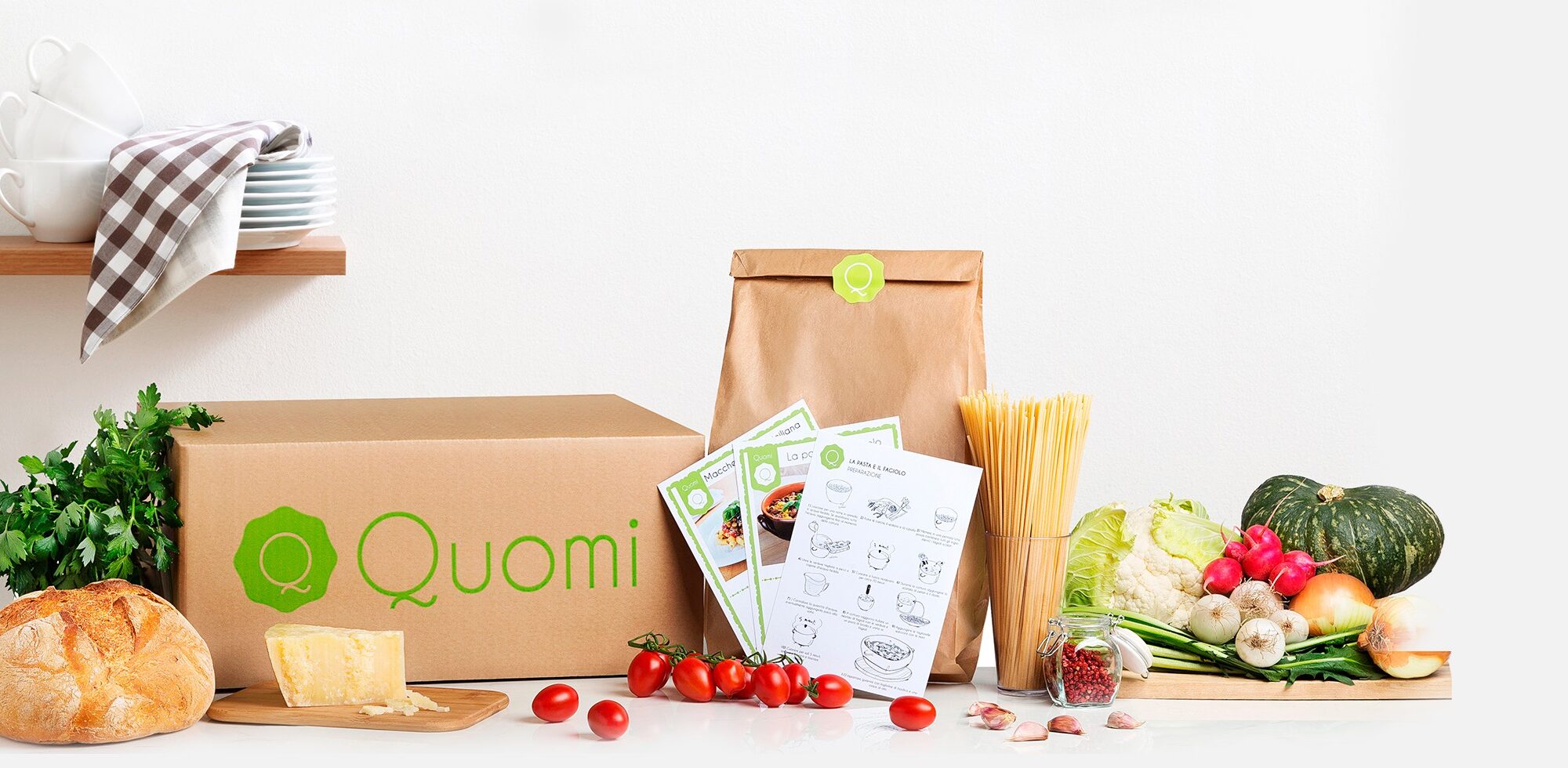Author: Michelangelo Serpico, MSc in International Food&Beverage Management student
Last month I had the opportunity talk to Andrea Bruno, ESCP Alumnus and founder of Quomi, a Meal Kit delivery company founded in Italy in 2016. The story of Quomi not only proves it is possible to successfully innovate in Italy in the F&B market, but it is also a very good starting point to talk about innovation.
At the very beginning of the interview, Andrea told me how everything started with strong drive and motivation, the first and most essential element for a Start Up: before 2016 Andrea was working successfully in a big company in Germany and Italy, but the strong desire for an entrepreneurial experience made him decide to face the uncertainty of leaving his job and starting a new adventure.
From that moment, Andrea, along with another ex-colleague, started looking for opportunities; their starting point was the Online food market, and from there they conducted an analysis that led them to understand which business models were working in this sector, and what was missing in Italy. It is very important to carry out such analytical processes, because studying other businesses can help you learn what is successful and what isn’t, and create an initial outline of the company’s future strategy.
This is how they decided on the Meal Kit business model, and in the following 6 months they worked hard at building their company. In January 2016 Quomi started operating, but it was only the first step towards their success. Andrea pointed out that the key to adapting a business model to a new market is to learn from failure: they tried different approaches, learned from the response of the market, and modified their offer until they arrived at their current value proposition. This process, sometimes called the Lean Start-Up approach, ensures that a company will fail as early as possible, so as to learn as quickly as possible, with a minimum waste of resources.
By using this approach, the positioning of Quomi was based on three core strategies: promotion of a varied and balanced diet, the use of high quality ingredients, and full sustainability. In this sense it is worth mentioning that from January 2021 the business is fully sustainable, with the food delivered in a fully recyclable box, with one tree planted for each order received. Such careful attention to sustainability should remind every entrepreneur that innovation today must take this element into account, something that consumers are less and less willing to overlook.

Lastly Andrea concluded the interview by pointing out that there is another key element to be considered; he believes that one of the biggest challenges for an entrepreneur in launching the business is timing. In the case of Quomi, Andrea mentioned once again how they had to learn from their mistakes: in 2016, when they started, the market was not ready; neither were consumers accustomed to this kind of offer, nor was the supply chain open to their new model. And so, he concluded, there is no magic formula, and the right recipe is a mix of art and science, with more than a sprinkle of motivation to face difficult situations and learn from one’s failures.



